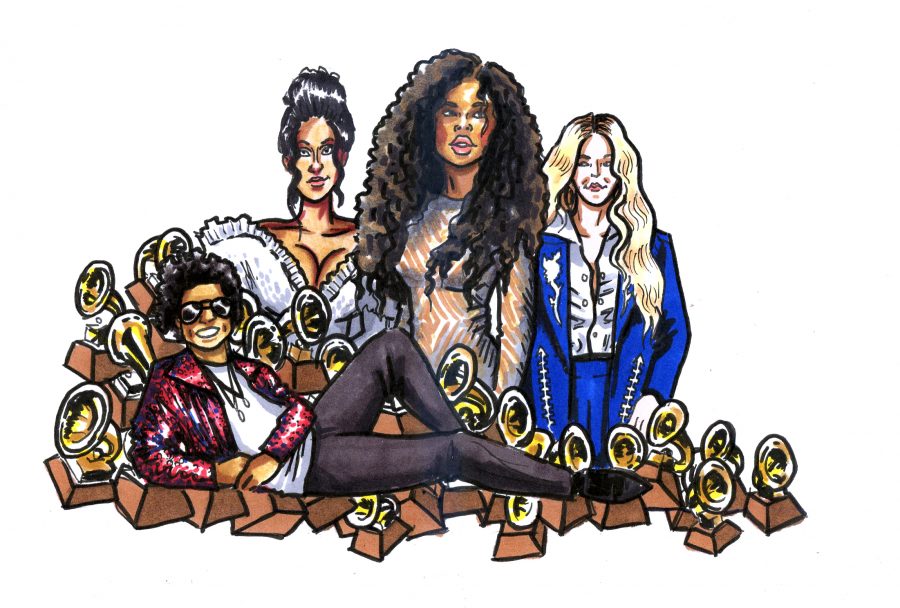If Neil Portnow didn’t watch the Grammys on Sunday night, he would be far from unique among Americans. The awards ceremony billed as “music’s biggest night” suffered its worst ratings in years, putting Portnow in the good company of millions of other nonviewers.
Then again, he probably watched — after all, he’s the president of the Recording Academy, the organization behind the Grammys.
It’s just hard to reconcile that fact with his comments in the show’s aftermath. Responding to criticism that his organization failed to properly recognize female artists, Portnow told Variety that women in music “(need) to step up, because I think they would
be welcome.”
The thing is, he had just seen plenty of examples of women doing just that — stepping up. From Lady Gaga to SZA to Kesha, women put on some of Sunday night’s best performances. The talent and creativity they displayed should have put to rest any notion that they are to blame for their gross underrepresentation at the Grammys and in the music industry at large.
Women shined when they had an audience, but for much of the show, they were kept off the stage. Only one of the televised awards at the ceremony went to a female artist; Alessia Cara won the best new artist prize, while elsewhere women were shut out as a parade of male artists climbed the steps to accept their trophies. SZA, the most nominated female artist, walked out empty-handed, and in the best pop vocal album category, three albums made by women ultimately lost to Ed
Sheeran’s Divide.
In total, just 17 out of the 86 awards given out by the Recording Academy went to women.
Moreover, of the five nominees for album of the year, only the four men were offered the chance to perform their own music, solo, during the show. Meanwhile, Lorde — the only woman with an album in the category — was not. Addressing the snub, the Grammys executive producer Ken Ehrlich told Billboard that there simply wasn’t enough time for her in the three-and-a-half-hour show that included multiple appearances by former Police frontman Sting.
As Lorde’s mother pointed out on Twitter, the problem isn’t restricted to this year’s awards. Of the 899 people nominated for Grammys in the last six years, just 9 percent were women. In fact, the problem isn’t even restricted to the Grammys.
As a study released last week by the University of Southern California confirmed, women face exclusion in the pop music industry at virtually every level. Among some of the biggest songs in the last six years on the Billboard Hot 100, just 22.4 percent were credited to female artists, just 12.3 percent were credited to female songwriters and just 2 percent were credited to female producers.
Lorde, SZA and others have proven time and time again that the women who overcome these barriers are among the best artists of their generation. Sunday night’s awards were a testament to the erasure that these artists still face, even after their initial success. On Tuesday, Portnow said he regretted his initial comments telling women to “step up.” Hopefully he learns from his mistakes and ensures that his organization does better next year — and every year after that.
Groves is a philosophy junior from Dallas. Follow him on Twitter @samgroves.


















